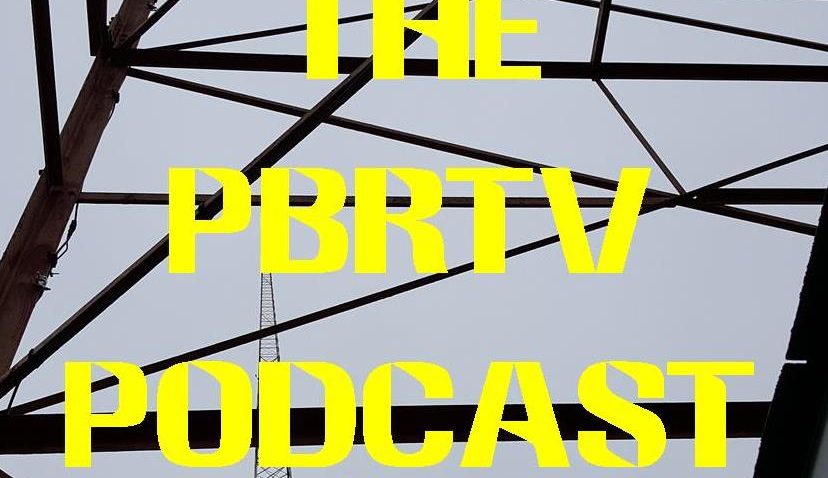FCC changes ownership rules
December 21, 2007. . .
Other rule changes by the commission are relatively mild, and attempt to address complaints about absentee corporate ownership of radio and TV stations. For instance, the FCC proposes a requirement that broadcasters establish “permanent advisory boards” in each community of license “with which to consult periodically on community needs and issues.”
The Commission also pledges to “better educate members of the public as to the obligations of broadcasters” so that viewers and listeners “can become more actively involved in ensuring that stations offer locally oriented programming.”
The good news for major broadcasters is that the FCC is making no attempt to clamp down on rules that allow companies to own two TV stations in any city with eight or more stations, or up to eight radio stations (five in smaller markets). That’s bad news for opponents of media consolidation, mainly on the left-wing.
. . .
Predictably, the FCC’s decision to allow newspapers and radio or TV stations to share ownership was approved Tuesday along strict party lines — endorsed by the three Republican-majority commissioners and opposed by the two Democratic-minority commissioners.
Commission Chair Kevin Martin said the ruling would strengthen the financial health of U.S. newspapers at a time when circulation and readership is in decline. “Allowing cross-ownership may help to forestall the erosion in local news coverage by enabling companies to share these local news gathering costs across multiple media platforms,” he said.
. . .
Minority Commissioner Michael Copps, a frequent critic of Martin and the other two Republicans, criticized the majority for rushing its decision and failing to do enough to strengthen localism, at least in his opinion. He accused Martin and commissioners Deborah Taylor Tate and Robert M. McDowell of ignoring testimony delivered by the public during six hearings, virtually all of which called for stricter regulation of radio and TV broadcast ownership.
“Today’s decision would make George Orwell proud,” Copps said. “We claim to be giving the news industry a shot in the arm — but the real effect is to reduce total newsgathering.”
He said merging TV, radio and newspaper operations would inevitably lead to fewer jobs and more uniformity in news coverage, and called the rulings “unconnected to good policy and not even incidentally concerned with encouraging media to make our democracy stronger.”
“We generously ask big media to sit on Santa’s knee, tell us what it wants for Christmas, and then push through whatever of these wishes are politically and practically feasible,” Copps said.
. . .
Martin fired back, saying that the review process wasn’t rushed — it took 18 months — and noted that during the six public hearings, only two people even mentioned newspaper-broadcasting cross-ownership.
“The majority of people expressed concern about consolidation generally, and I believe we are responding by not changing the local TV rule, the local radio rule, the local TV/radio rule, the national TV cap, or the national cable cap,” he said.
“Unfortunately, my Democratic colleagues have been quick to say no to whatever was proposed but never getting to yes or even putting forward their own ideas on the substance of the issues before us,” Martin said.
. . .
There’s a chance that the U.S. Congress might big-foot the FCC’s decision. Legislation has been introduced in both the House and Senate to overturn the commission’s vote, and the Senate bill has the support of heavy hitters like Republicans Trent Lott and Olympia Snowe, as well as Democrats such as presidential candidates Hillary Rodham Clinton and Barack Obama. Pennsylvania’s Democratic senator, Bob Casey Jr., is also among the sponsors of the “Media Ownership Act of 2007.”
U.S. Rep. Mike Doyle, a Democrat from Swissvale who represents much of the Pittsburgh area, is another foe of media consolidation; he sharply questioned Martin at a recent congressional hearing.
. . .
Correction: This story originally called WPXI-TV’s parent company “Cox Communications.” It is “Cox Enterprises.”
At first glance, new ownership rules proposed by the Federal Communications Commission wouldn’t seem to make much immediate impact on Pittsburgh, Johnstown, Youngstown or surrounding markets.
 The biggest change would allow TV and radio stations and newspapers in the top 20 Nielsen-rated markets to be owned by the same companies.
The biggest change would allow TV and radio stations and newspapers in the top 20 Nielsen-rated markets to be owned by the same companies.
Newspapers are currently prohibited from owning radio and TV stations, except under “grandfathered” arrangements made before the current rules, or when special waivers are granted.
There’s always a possibility — however slim — that one of Pittsburgh’s newspapers could buy one of its TV stations, or vice-versa. But such a deal would require a waiver because Pittsburgh is no longer a top 20 media market. (It’s Nielsen market No. 22.)
Of course, several Pittsburgh area newspapers do have broadcasting ties — the Post-Gazette is owned by Block Communications, which owns cable TV systems in Ohio and Michigan, along with TV stations in Ohio, Kentucky and Illinois, while Tribune-Review Publisher Richard M. Scaife owns 51 percent of Pittsburgh’s KQV (1410).
And Calkins Media — parent company of the Beaver County Times and the Uniontown Herald-Standard — owns TV stations in Alabama and Florida.
In addition, Pittsburgh’s WPXI-TV (11), Johnstown’s WJAC-TV (6) and Steubenville’s WTOV-TV (9) are all owned by Cox Enterprises, which controls the Atlanta Journal-Constitution and other major newspapers. And WTAE-TV (4) is owned by Hearst-Argyle Television, which is controlled by newspaper and magazine conglomerate Hearst Corp.

